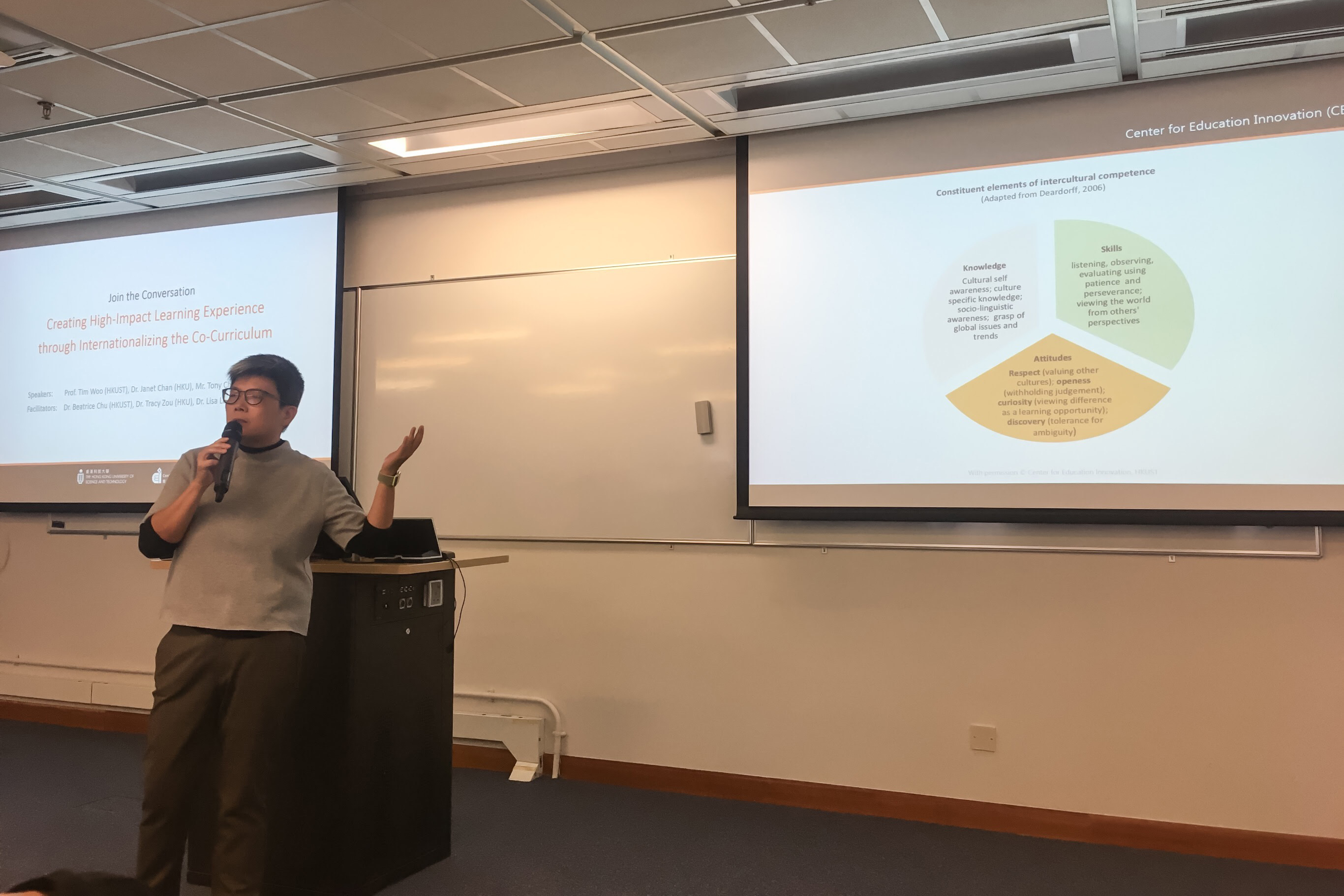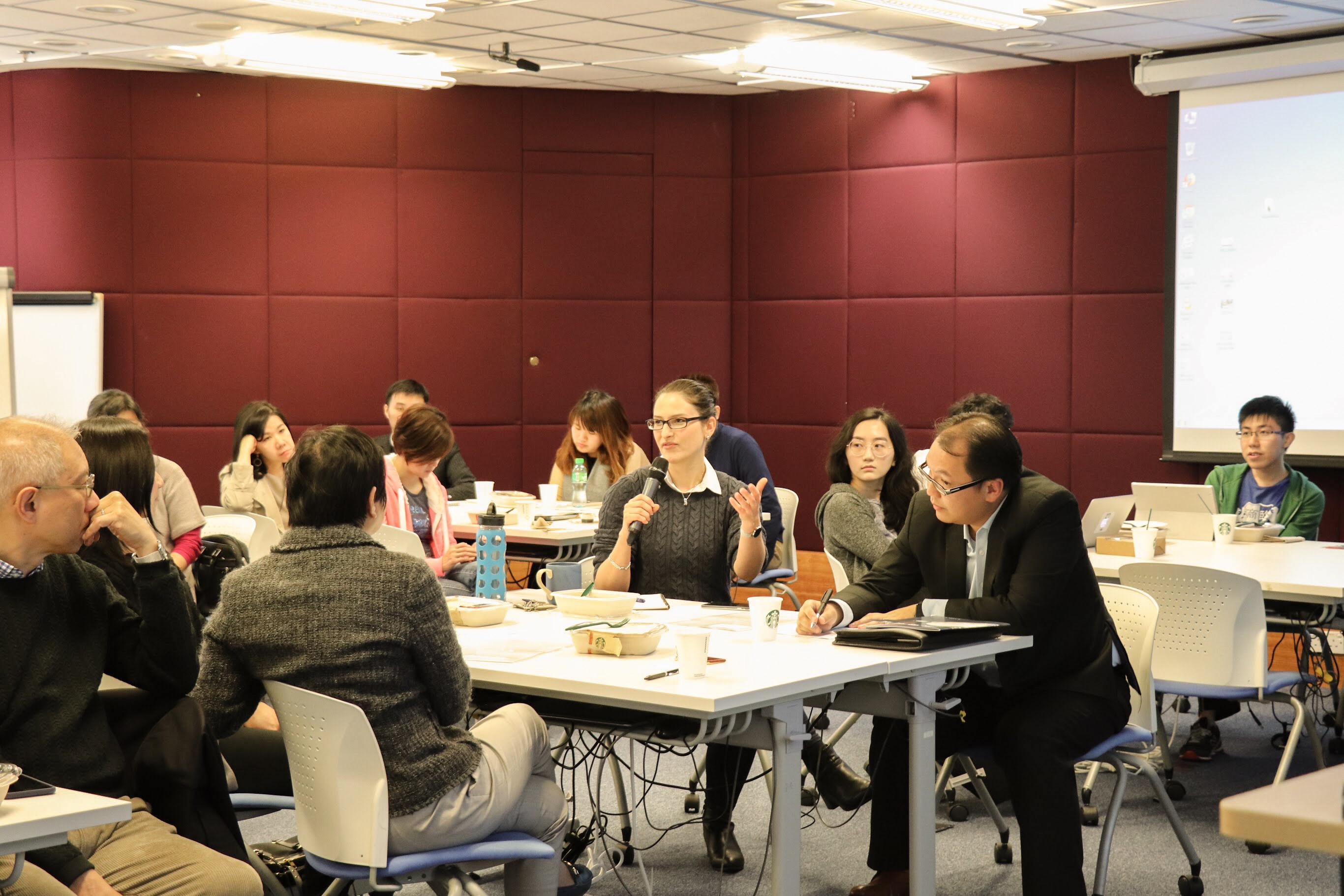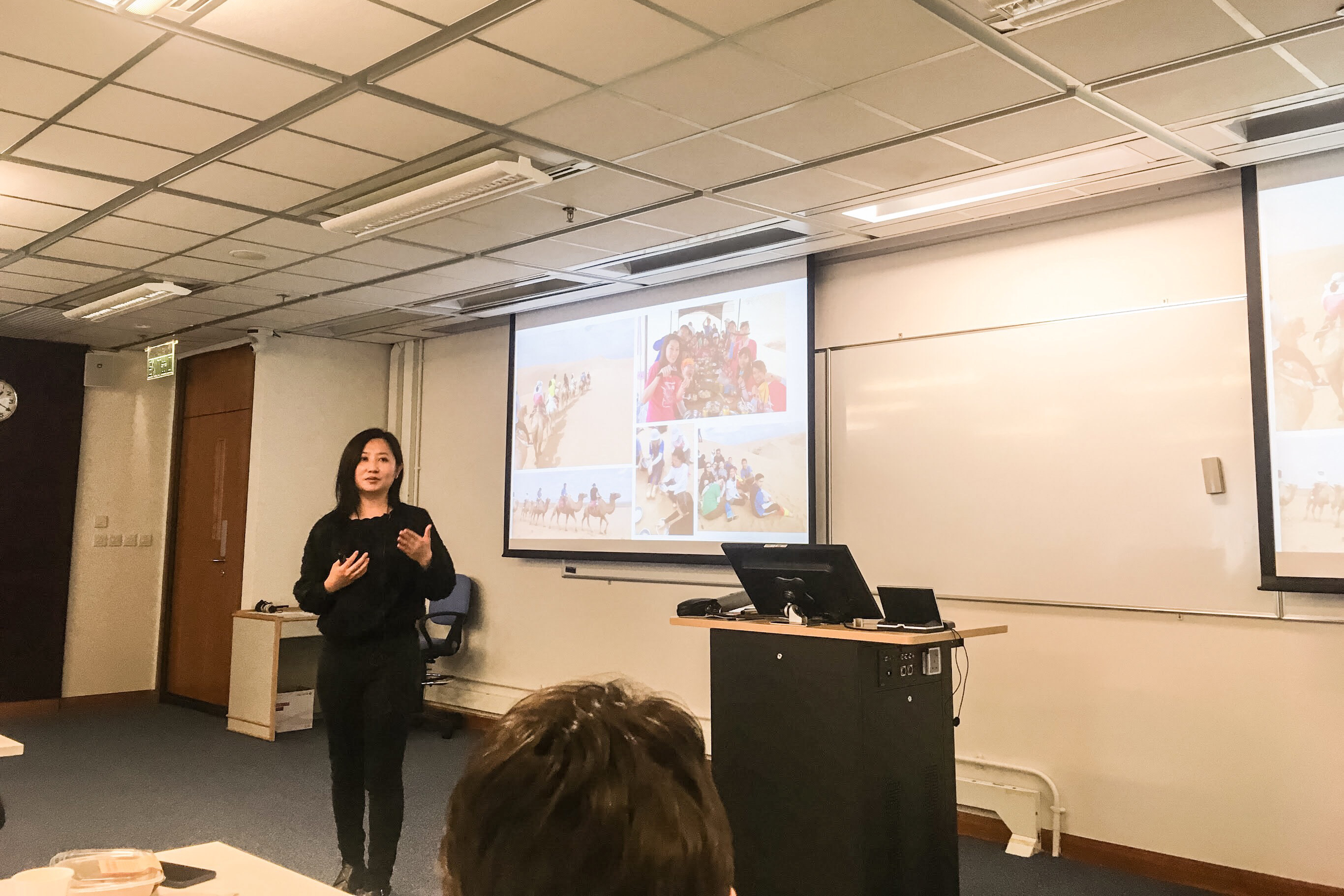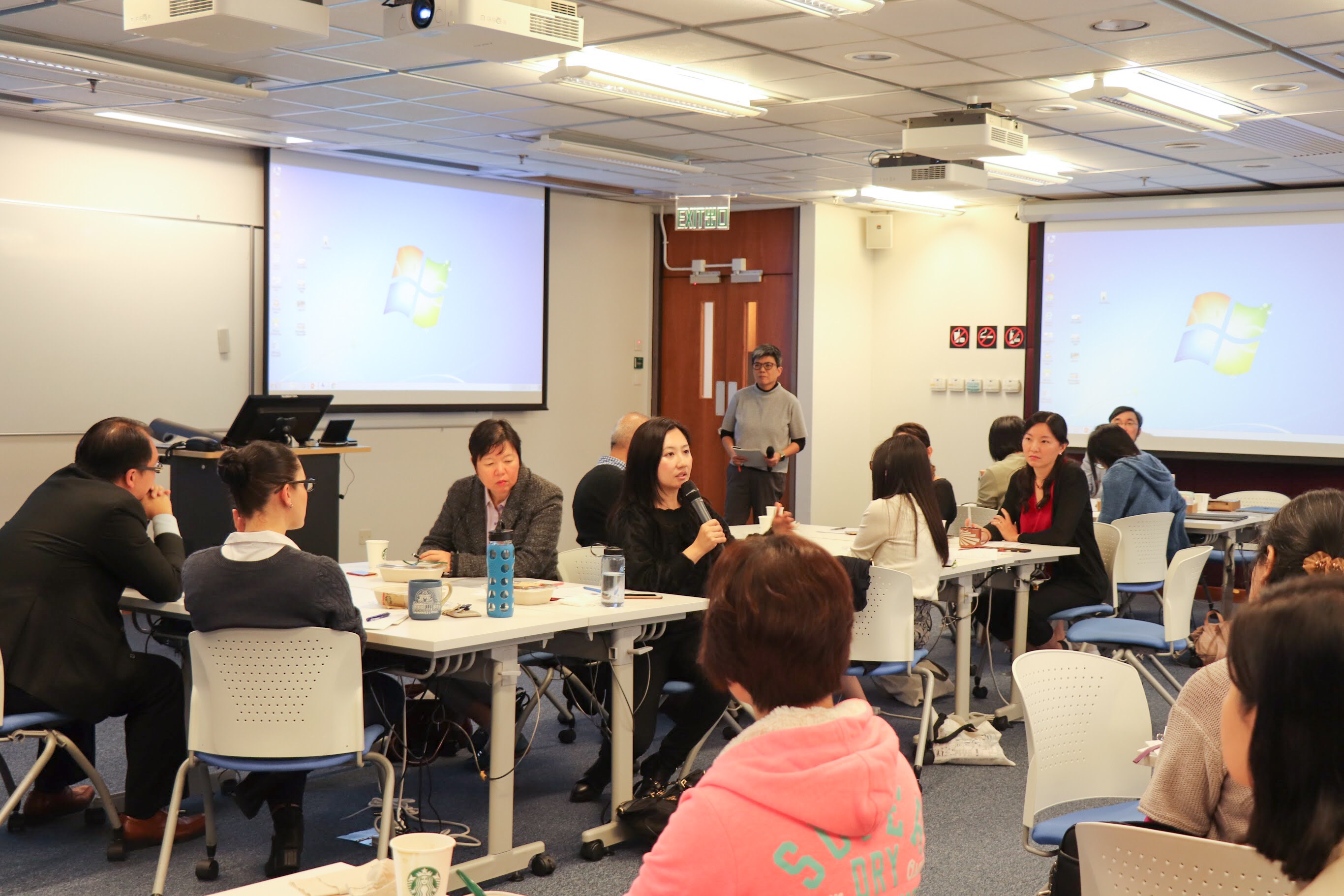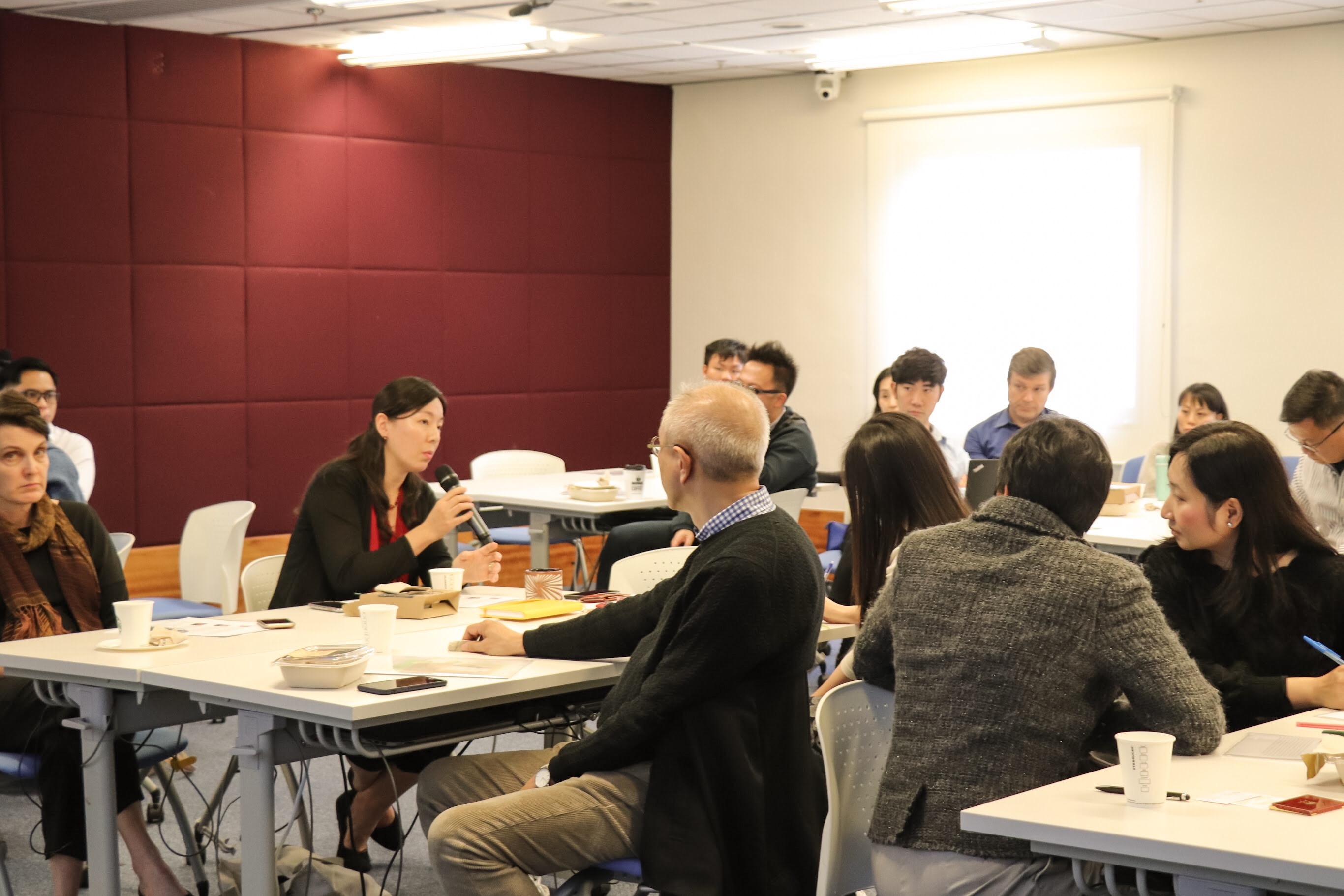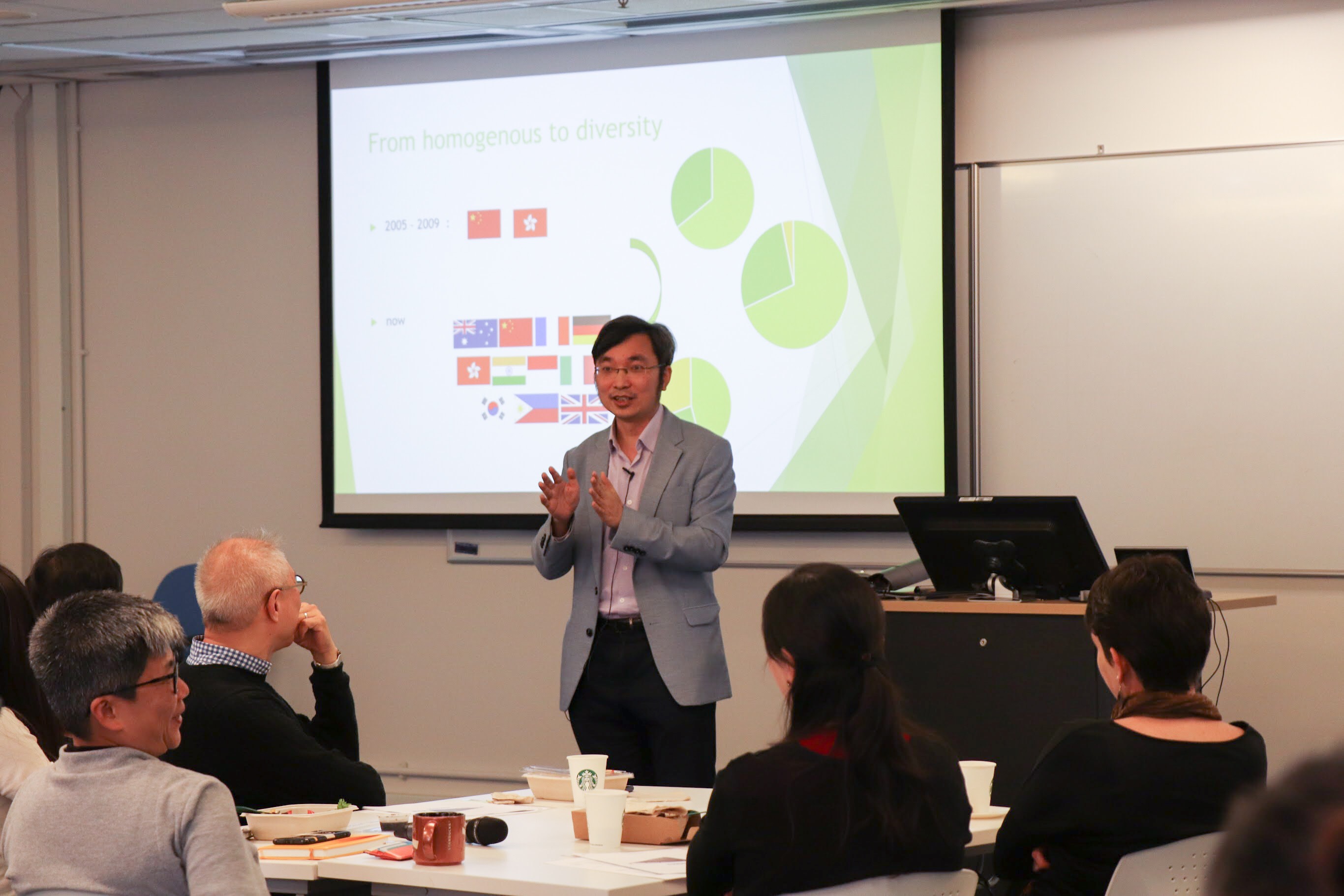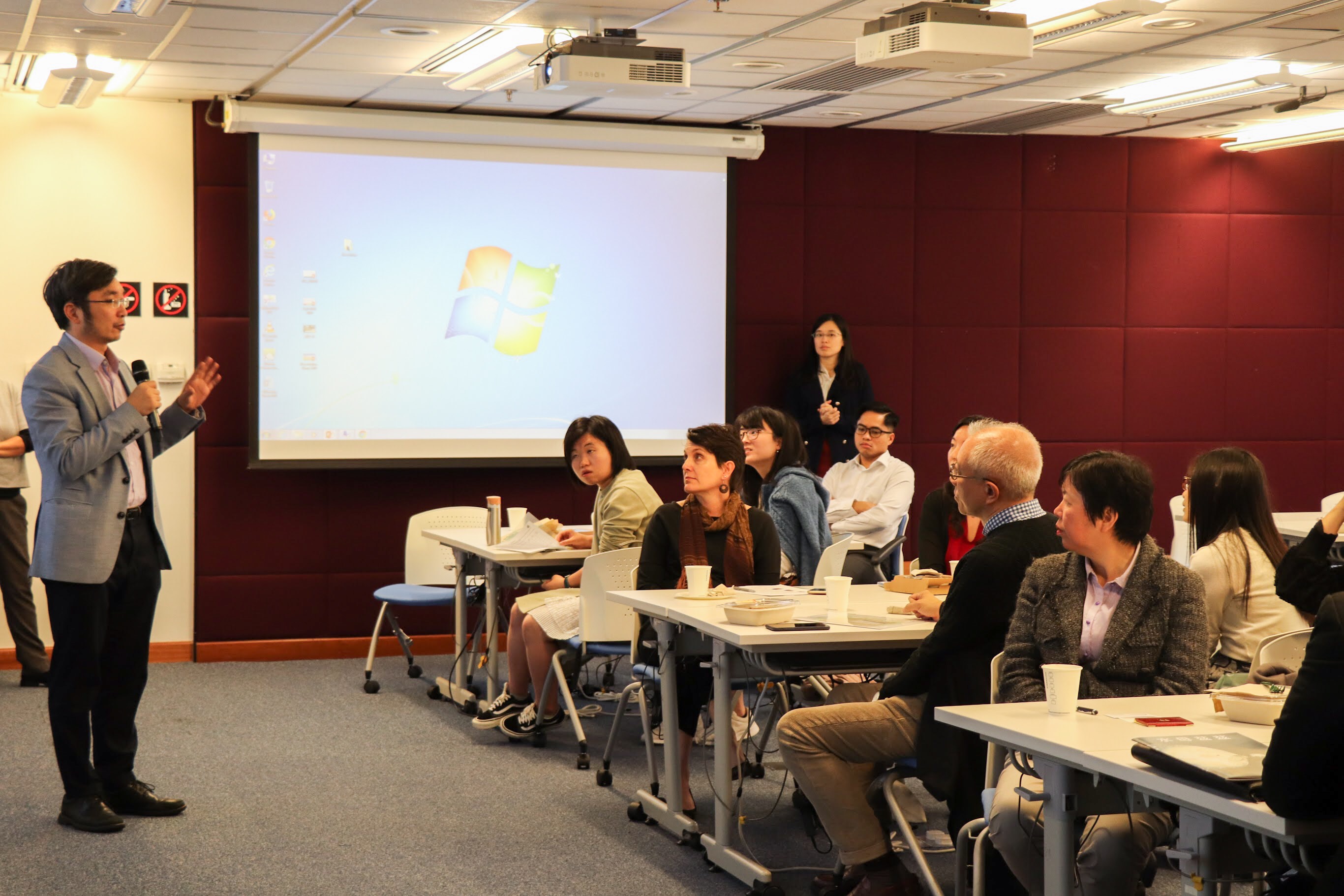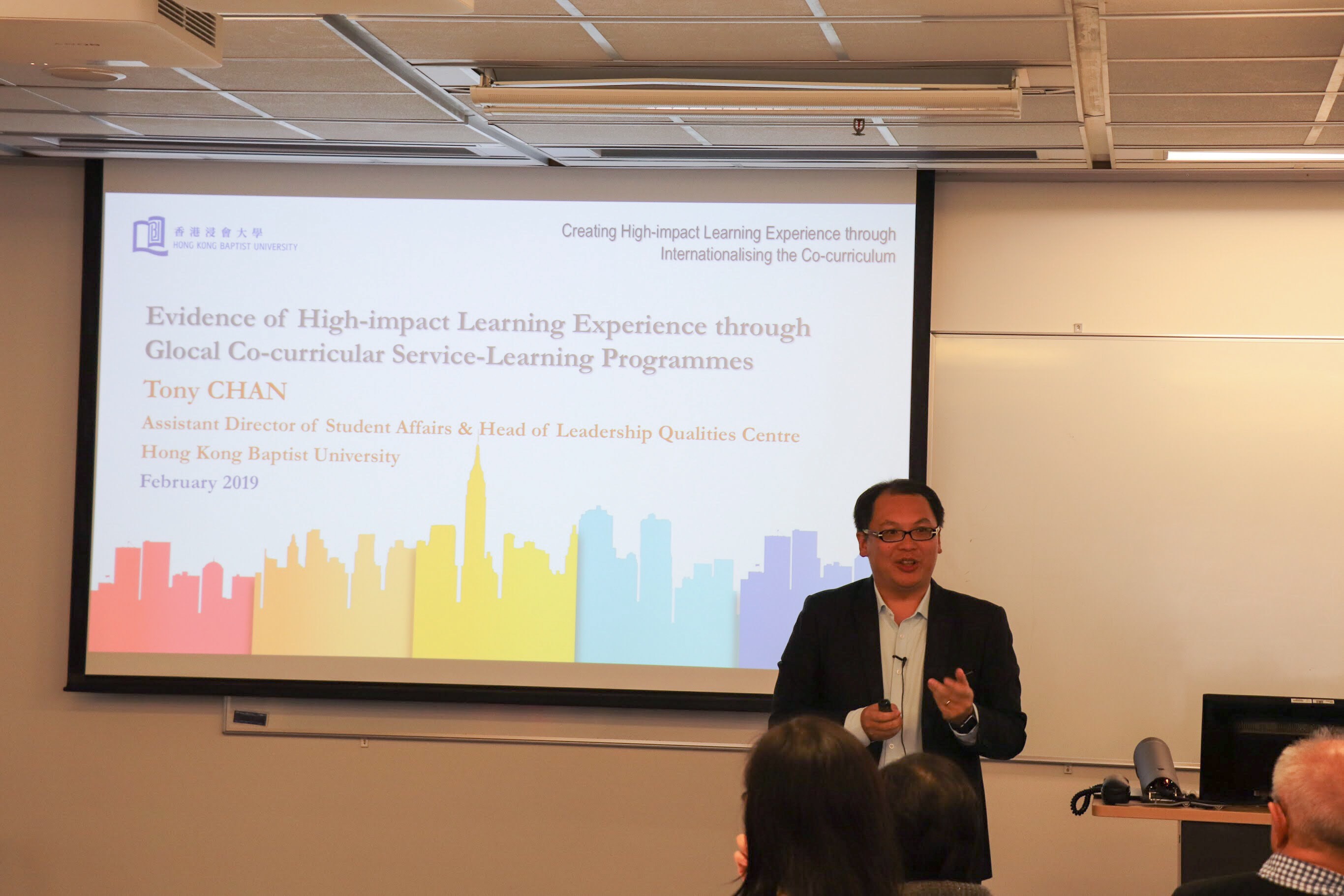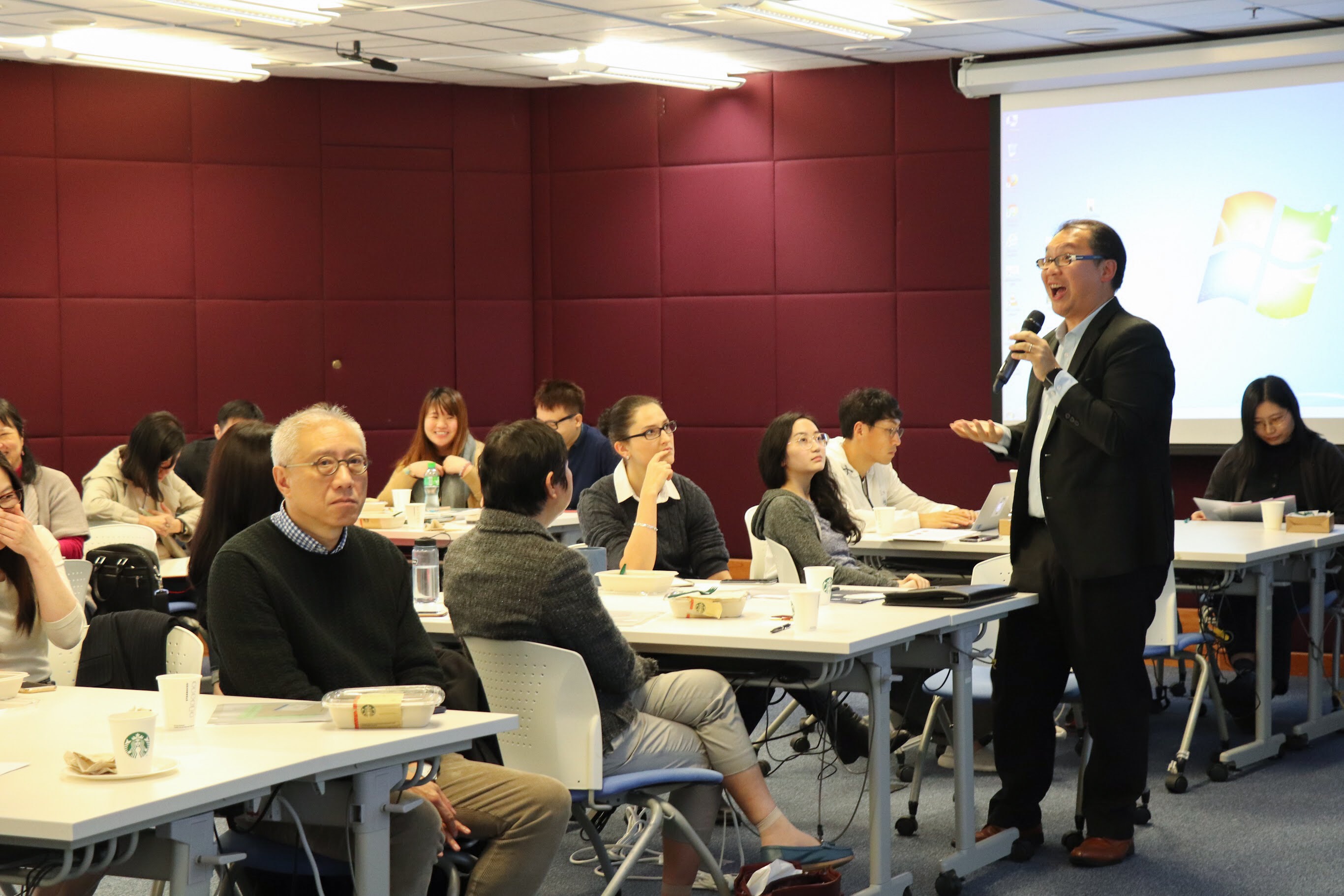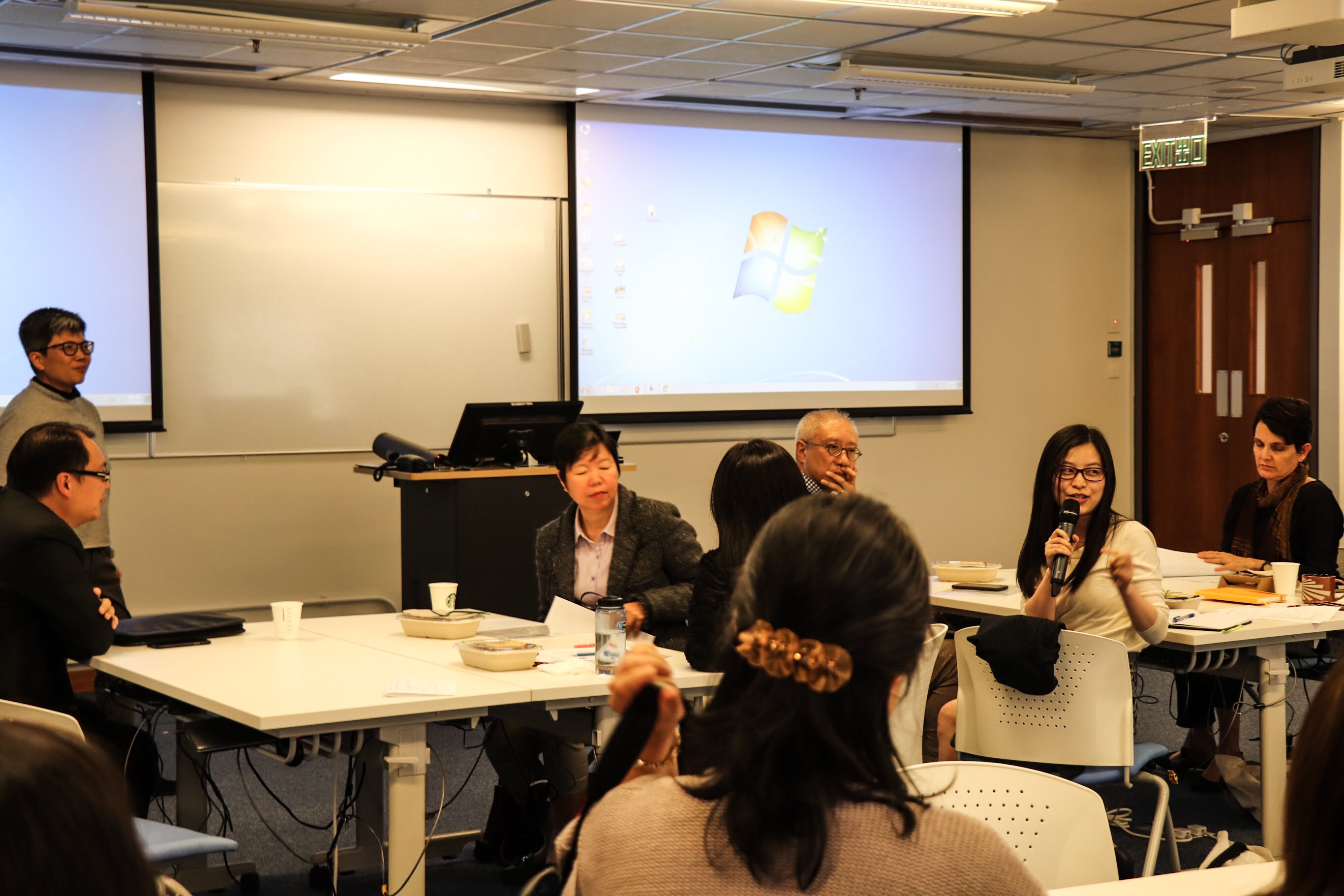Events
Join-the-Conversation
Creating High-Impact Learning Experience through Internationalising the Co-Curriculum
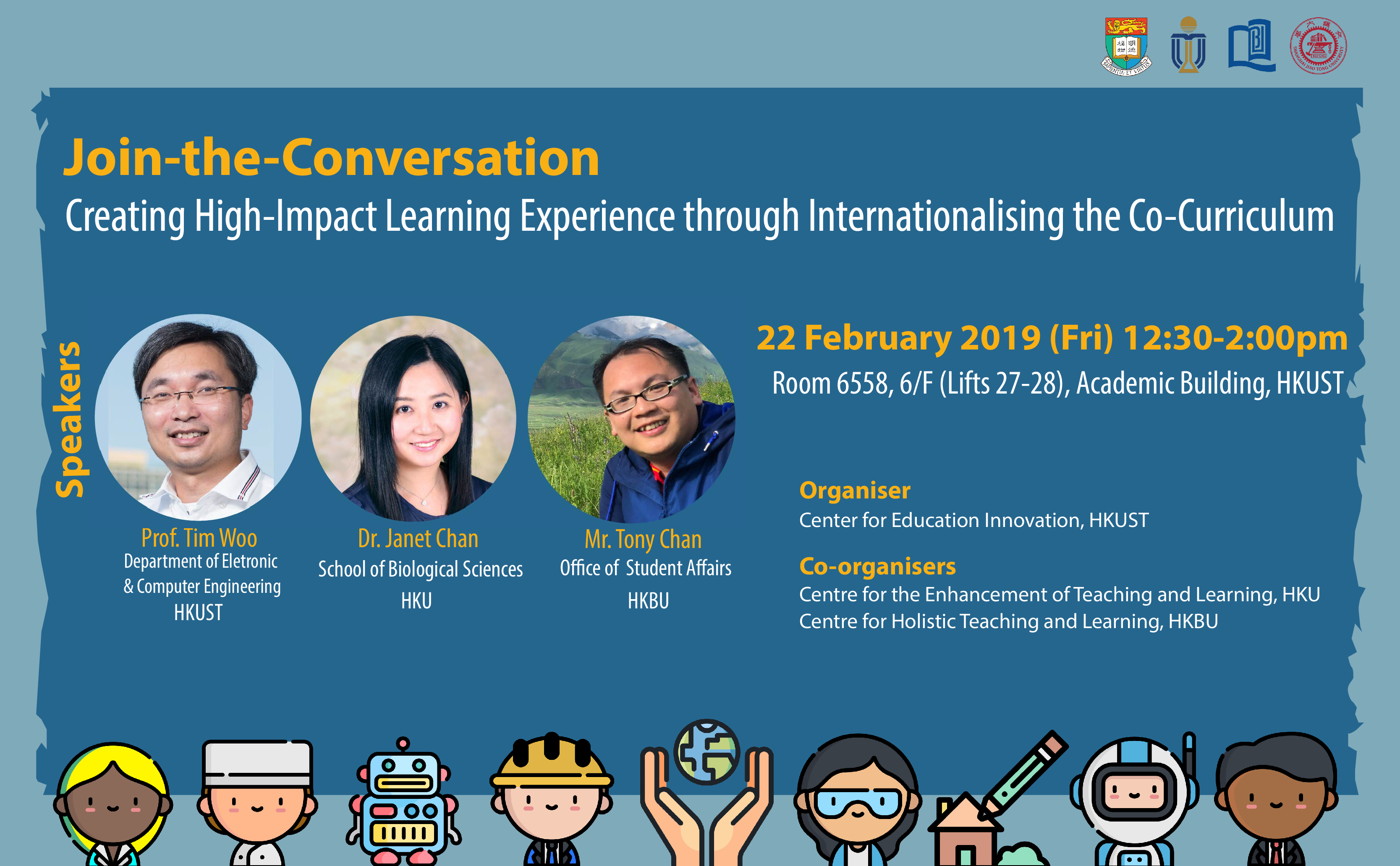
Date: 22 February 2019 (Friday)
Time: 12:30pm – 2:00pm
Venue: Room 6558, 6/F (Lifts 27/28), Academic Building, HKUST
Speaker: Prof. Tim Woo (HKUST), Dr. Janet Chan (HKU), Mr. Tony Chan (HKBU)
Facilitator: Dr. Beatrice Chu (HKUST), Dr. Tracy Zou (HKU), Dr. Lisa Law (HKBU)
Organiser: Center for Education Innovation, HKUST
Co-organisers: Centre for the Enhancement of Teaching and Learning, HKU; Centre for Holistic Teaching and Learning, HKBU
Abstract
One of the ultimate goals of internationalising education is to create a favourable international learning environment from which all students can benefit and therefore develop the knowledge, attributes and skills that are needed in today’s global world. This is also the essence of ‘internationalization at home’ (Nilsson, 2003). To achieve this, internationalization of the co-curriculum is as important as that of the formal curriculum (Leask, 2015). Effective engagement in the co-curricular programmes and activities enriches students’ learning while also developing their holistic well-being and intercultural skills. The key lies in how we, as educators, facilitate purposive co-curricular engagement and magnify its impact. In this join-the-conversation event, three panel speakers will share with us their good practices and insights into how internationalization of co-curricular engagement can create high-impact learning experience and in what ways we can benefit from a mix of students from various backgrounds.
Mark your calendar. For details and registration, please navigate to http://cei.ust.hk/event/join-conversation-creating-high-impact-learning-experience-through-internationalizing-co.
The fifth Join-the-Conversation event was held on 22 February 2019 (Friday) at HKUST with a focus on how to create high-impact learning experience by internationalising the co-curriculum. While the event brought together more than thirty participants across different institutions, the fruitful discussion at the end echoed with the invaluable sharing from three speakers from HKUST, HKU and HKBU.
Dr. Beatrice Chu started the event by a warm welcome and two questions for participants to bear in mind before the speakers’ presentations. They are (1) “how can co-curricular programmes foster the development of intercultural competence development?” and (2) “how can intercultural competence constitute to the competence and skills that are required in the 21st century?”
Our first speaker, Prof. Tim Woo from the Department of Electronic and Computer Engineering, HKUST, illustrated how students from different cultural backgrounds and disciplines worked together towards a common goal in the HKUST Robotics Team. As a team having more 70 members with more than 12 nationalities, Tim pointed out that appreciation of the support from senior members and utilisation of the cultural differences among team members are the keys to developing students’ learning, holistic well-being, problem-solving and intercultural skills. He also highlighted the importance of teachers being the facilitators in the classroom and in co-curriculum activities as they are the ones who develop students’ attributes and empower students’ learning journey through four stages: (1) gathering students of common interests, (2) developing their core values, (3) encouraging the learning, and (4) obtaining feedback.
Our second speaker, Dr. Janet Chan from the School of Biological Sciences, HKU, shared with us her environmental trip in the Shanxi Province as she believes participating in co-curriculum programmes is an integral part of students’ learning journey. Through serving the community in Mainland China, in partnership with three NGOs, the Programme, ‘Evergreen Woodland’ Service Camp, provided an opportunity for students to apply, develop, and reflect on their acquired knowledge and attributes in order to impact the community. Participants enriched their learning experience in global environmental issues, such as climate change and desertification, by engaging in tree planting in Mu Su Desert and sand-protection barrier building in Baiyu Mountain. The programme allowed students to work on some deliverables. Janet incorporated the elements of cross-cultural encounters, the use of social media for learning, partnerships and development of global citizenship into her programme which aligned with the strategic goals of HKU to promote Internationalisation, Innovation, Interdisciplinarity and Impact.
Our last speaker, Mr. Tony Chan from the Leadership Quality Centre, HKBU, demonstrated how co-curriculum programmes can empower students to become committed global and local citizens while facing global challenges. The Service-Learning Global Internship Programme (SLGIP) 2018, a 4-8 weeks of non-credit bearing service-learning programme involving 45 students from different majors and collaborations with 19 NGOs, was used as an example to elaborate the idea of engaging students in different service-learning projects to develop their attributes (i.e. Attitude: Intercultural attitude and global citizenship; Knowledge: interdisciplinary and intercultural knowledge; and Skills: Intercultural skills). Tony believes that the co-curriculum programme has deepened students’ understanding of global issues as exemplified by students’ weekly online journals on the designated Facebook page and by their reflective journals.
Some issues pertinent to internationalisation of the co-curriculum were raised and discussed among speakers, facilitators and the floor, for example:
- Some audience raised the concern on how can the organisers, on behalf of the University, protect students from certain safety issues while arranging overseas internships/ experiential learning/ study tours?
The panel mentioned that it was important to send reminders to agencies and participating students that they could feel free to report to the organisers whenever they found uncomfortable. The panel also commented that they would read through the weekly online journals to identify any possible irregularity among the student teams. Lastly, building networks with NGOs based in the partnering countries were necessary. - Some wondered the ways to maintain the sustainability of those one-off events so as to transfer their experiences and attributes year after year.
The panel highlighted that encouraging appreciation among the team was essential because it would form a culture and gradually motivate senior students to come back and do some voluntary service to the team. In terms of sustainability, HKUST Robotics Team also engaged team members in the community by having them transfer the knowledge and skills of building underwater robots. Moreover, one of the panel speakers also commented on the use of WhatsApp groups to maintain the relationships with the participants of the past events. - Some audience also appreciated how the service-learning programmes matched students’ skills instead of randomly assigning them to irrelevant projects. This could avoid the mismatch of knowledge and also allowed students to feel unique because their contributions would not be something that anyone could make. Besides, audience also liked the idea of “What’s Next?” as they were interested in empowering students to take initiatives to impact the community.
- The floor also gave feedback and came up with a suggested topic that could be included in the future events: How to translate these good experience and practices of co-curriculum back to the curriculum?
Towards the end of the event, Dr. Beatrice Chu remarked that CoP-ITL welcomed interested and likeminded participants to sign up for the community of practice (https://www4.talic.hku.hk/cop-itl/).


